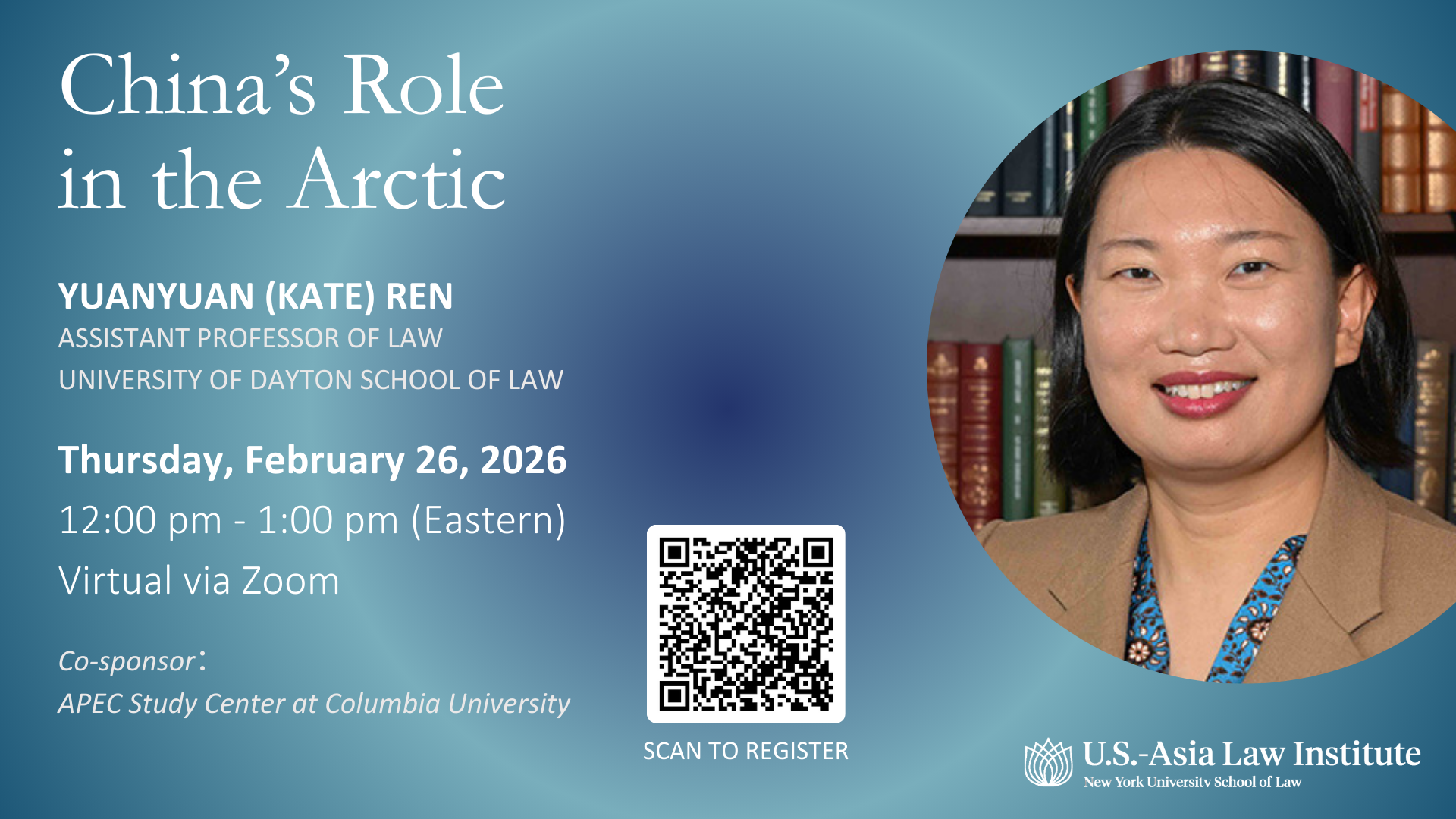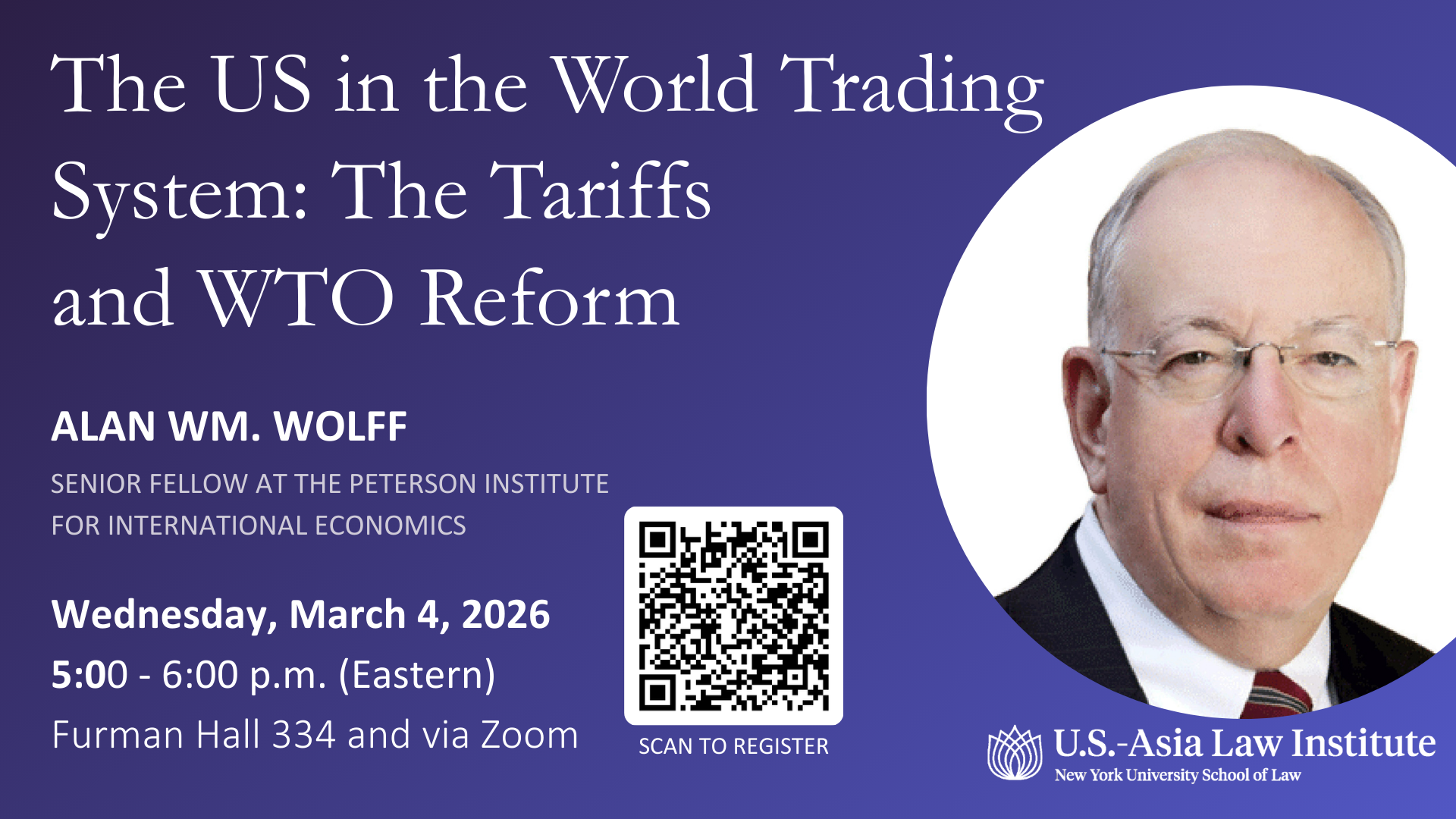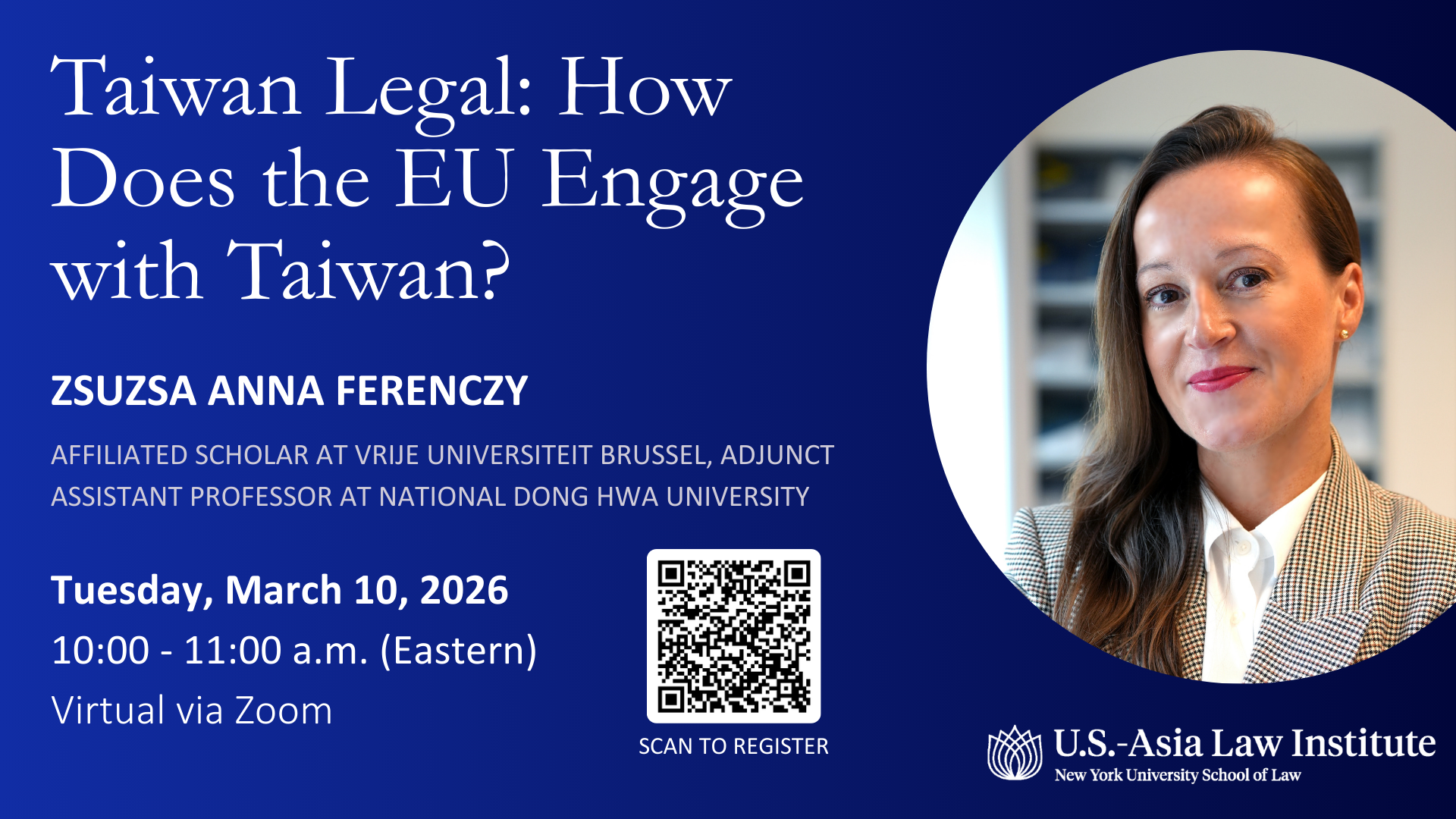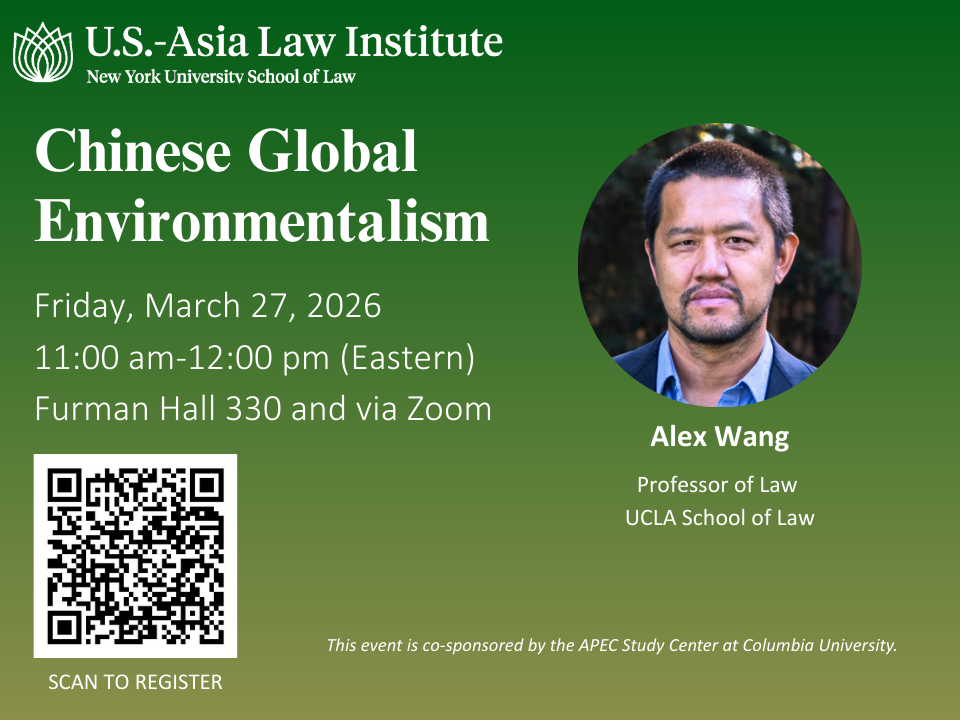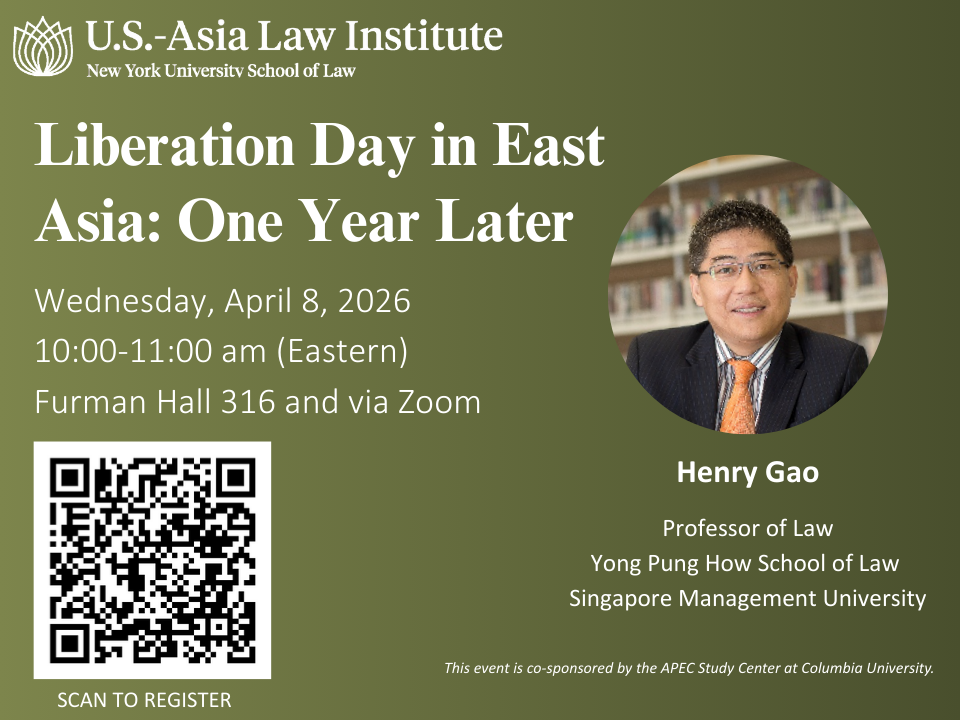Upcoming Events
The Trump administration’s efforts to secure more control over Greenland have put China’s activities in the Arctic under a spotlight. Since 2018 when China declared itself to be a “near-Arctic state” with strategic interests in the region, it has expanded its Arctic research activities, acquired more icebreaking vessels, conducted Arctic patrols with Russia, and sent a ship from Asia to Europe through the Arctic Ocean along Russia’s northern coast – a route China has dubbed the “Polar Silk Road.” But is any of this activity contrary to international law or dangerous to the US? Professor Yuanyuan (Kate) Ren at the University of Dayton School of Law, an international law scholar who formerly worked at the Polar Research Institute of China, will explain how China interprets international law at the polar regions and what is publicly known about its Arctic goals.
Wednesday, March 4, 2026
5:00 - 6:00 p.m. (Eastern)
Furman Hall 334 and via Zoom
We continue our speaker series about Taiwan’s status in the world with a look at its relationship with the European Union. None of the EU’s twenty-seven member states has diplomatic relations with Taiwan, but nineteen member states and the EU itself have opened quasi-embassies there and the EU holds a ministerial-level trade and investment dialogue with its government. In recent years, as tensions with China have heightened over trade disputes and the war in Ukraine, the EU Parliament has increasingly emphasized Taiwan’s shared democratic values and their similar experiences living with a powerful, authoritarian neighbor. Zsuzsa Anna Ferenczy, a scholar who divides her time between Brussels and Taiwan, will unpack the drivers and limitations of Europe’s affinity for Taiwan..
We find ourselves at a remarkable moment in global environmental governance. China actively supports green development on the global stage, while the US under the Trump administration rejects the Paris Agreement and actively opposes the development of renewable energy and electric vehicles. Professor Alex Wang of the UCLA School of Law will introduce his new book, Chinese Global Environmentalism, which examines how China came to embrace green development and how it promotes a developmental form of environmentalism that differs from Western conceptions.
Twelve months ago, President Donald Trump declared “liberation day” and launched a tariff war against the entire world, including key American trade partners in East Asia. Over succeeding months, additional tariffs were announced, modified, and withdrawn against countries and specific goods, such as steel and aluminum. Henry Gao, law professor at Singapore Management University and a trade expert, will take stock of the lasting impact of Trump’s weaponization of tariffs on East Asia and the global trading system. He also will ask whether the tariff war could bring a silver lining: the opportunity to finally address long-festering problems with the old trade system.
Special Events

Timothy A. Gelatt Dialogue on the Rule of Law in East Asia

